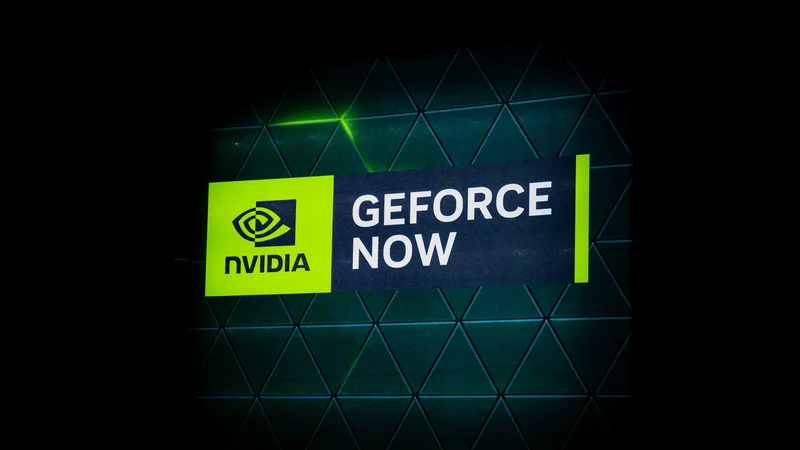Article Directory
The Day the Code Got Political: Why Jensen Huang’s Speech Was the Wake-Up Call We Needed
I’ve been to more tech keynotes than I can count. You know the rhythm: the darkened room, the anticipatory hum of the crowd, the CEO striding onto the stage under a single spotlight. We expect product reveals, mind-bending demos, and optimistic roadmaps for the future. When I tuned into Jensen Huang’s GTC address, I expected silicon. I expected performance charts. I did not expect what felt like a political rally—a sentiment echoed in reports that the Nvidia CEO turns tech conference into celebration of Trump. And I’ll be honest, it was jarring.
Watching the leader of the world’s most important technology company close his speech with a political campaign slogan was a moment that felt like a system shock. My first reaction was discomfort. Tech, for many of us, has always felt like a separate sphere—a meritocracy of ideas where the best code wins. But what I’ve been processing since is that this moment wasn't an aberration. It was an announcement. It was the public unveiling of a reality that has been building in the background for years: the age of technological innocence is over. Technology, specifically the foundational layer of AI that Nvidia is building, is no longer an industry. It is now a core component of national power, as fundamental as energy reserves or military strength.
This isn't about one CEO or one administration. This is about a tectonic shift in our world. We are witnessing the deep, irreversible fusion of technological ambition and geopolitical strategy—in simpler terms, the line between Silicon Valley and Washington D.C. has dissolved. What does it mean when the people designing the architecture of our future are also helping to design national policy at state dinners? What happens to the global, open spirit of innovation when it gets wrapped in a flag? These aren't just academic questions anymore. They are the most important questions of our time.
A New Engine for Civilization
For decades, the engine of technological progress has been a brilliant, chaotic, and decentralized one, powered by venture capital and garage-based dreams. It was powerful, but it operated on its own track. What we are seeing now is something entirely new. It’s like taking that high-performance engine and bolting it directly onto a state-funded rocket. The potential for acceleration is breathtaking, but the direction is no longer set by innovators alone.

Think about it. Nvidia didn’t just become a $4 trillion company by making great gaming cards. It became a cornerstone of the global economy because its chips are the picks and shovels in the gold rush for artificial intelligence. When a technology becomes that critical, it ceases to be a commercial product and becomes a strategic asset. The deal to sell powerful chips to China, with the U.S. government getting a share of the revenue, isn't a simple sales agreement; it’s a treaty. It’s economic statecraft executed through a corporation. This is a paradigm shift that feels as significant as the dawn of the nuclear age or the space race. Back then, the alliance between science and the state gave us rockets to the moon. Where will this new alliance take us?
When I first saw the news, I honestly just sat back in my chair, speechless. This is the kind of breakthrough in thinking that reminds me why I got into this field in the first place—not just to see what’s next, but to understand the profound human implications. The scale of investment and coordinated effort required to build the next generation of AI is so colossal that it almost demands this level of integration—we’re talking about creating an infrastructure that will define economic and cultural power for the next hundred years, and that’s a project that inevitably goes beyond any single company’s balance sheet. The real question is, can we steer this rocket with wisdom? Can we ensure that this incredible new power is used to lift all of humanity, not just to win a race for national dominance?
This moment feels like the invention of the printing press, but with a fascinating inversion. When Gutenberg’s press arrived, it radically decentralized power away from the church and the state, giving it to the people. Information could flow freely. Today, with foundational AI, we are seeing a powerful gravitational re-centralization of power. The sheer cost and complexity of creating these models and the hardware they run on mean that only a handful of corporations and nation-states can truly operate at the frontier. This creates a new kind of social contract we have to navigate. We, the builders, the dreamers, the researchers, now have a profound responsibility to keep the soul of technology alive—to champion openness, to push for ethical guardrails, and to never forget that we are building these tools for everyone.
The Age of Titans Has Arrived
Let’s be clear: this new reality is unsettling, but it is not a reason for despair. It is a call to action. The fusion of immense corporate power and state ambition is here. To pretend otherwise is to bury our heads in the sand. This is the new landscape. Our job is not to fear it, but to step into it with our eyes wide open and our principles held high. This is the moment where technologists must become statespeople, and leaders must become technologically literate. The challenges are immense, but the opportunity is historic. For the first time, we may have the alignment of resources, vision, and will to solve problems once thought unsolvable. This is the beginning of a new chapter, and we are the ones who get to write it.
